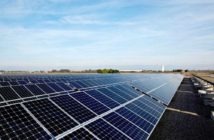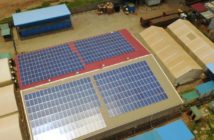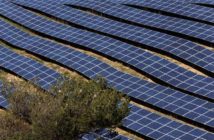* Desertec says agreement on Morocco project imminent
* Morocco plant would be first concrete project
By Madeline Chambers
BERLIN, Nov 7 (Reuters) – Desertec, the world’s most ambitious solar power initiative, said on Wednesday that partner Spain was holding up its first concrete deal to feed solar power from northern Africa to Europe.
The consortium of 57 partners from 16 countries, had hoped to announce an agreement to build a 500 megawatt (MW) solar power plant in Morocco at a conference in Berlin but Spain’s reservations highlighted the complexities of the initiative.
Desertec Chief Executive Paul van Son declined to go into detail on Spain’s reservations but said he was confident the government would be convinced soon. The power would be fed into the Spanish grid via underwater cables from northern Africa.
“It will be a project that benefits Spain, too and I am convinced we will get it agreed soon,” he told a news conference, adding that he expected it in a matter of days or weeks.
Another setback came last month when German industrial conglomerate Siemens said it was quitting its loss-making solar business and ending its involvement in the ambitious solar venture.
Desertec, founded three years ago, envisages Europe importing up to a fifth of its electricity from solar and wind parks in North Africa and the Middle East by 2050.
The project, based in Munich, aims to use mirrors to harness the sun’s rays to produce steam and drive turbines to generate electricity in the Sahara region. It wants its plants to cover an area of 6,500 square miles and produce 1,064 terrawatt hours (TWh), almost enough energy to power Germany for two years.
However, since its establishment in 2009, Desertec has not started work on any concrete ventures due to complicated negotiations between many partners with conflicting interests.
The planned Morocco project in Ouarzazate in the Western Sahara would take up to four years to complete. In a first stage, the plant would produce some 160 MW of electricity.
“It would be a breakthrough – the first time maybe worldwide but at least in Europe and the Middle East that there will be an agreement between governments that brings (solar) energy across the borders like this,” Van Son said
Estimates have put the cost at several hundreds of millions of euros.
Morocco wants the project to boost its fledgling renewable energy sector.
“It is very important to us to introduce renewables into our portfolio, even though we don’t have to,” said Mustapha Bakkoury, of the Moroccan Agency for Solar Energy, adding Morocco could continue with conventional energy sources.
Derided by critics as being too costly and beset by political uncertainties, Desertec has struggled to attract investors and the Arab Spring cast further doubt over partners in northern Africa and the Middle East.
European companies, hit by falling government subsidies for photovoltaic power and competition from Chinese rivals, have been reluctant to commit to Desertec.
Shareholders of the Desertec Industrial Initiative (DII) include ABB, German reinsurer Munich Re, utilities E.ON and RWE, Abengoa and Deutsche Bank.
Desertec plans further renewable energy plants in Algeria and Tunisia.
(Reporting By Madeline Chambers, editing by William Hardy)
.






